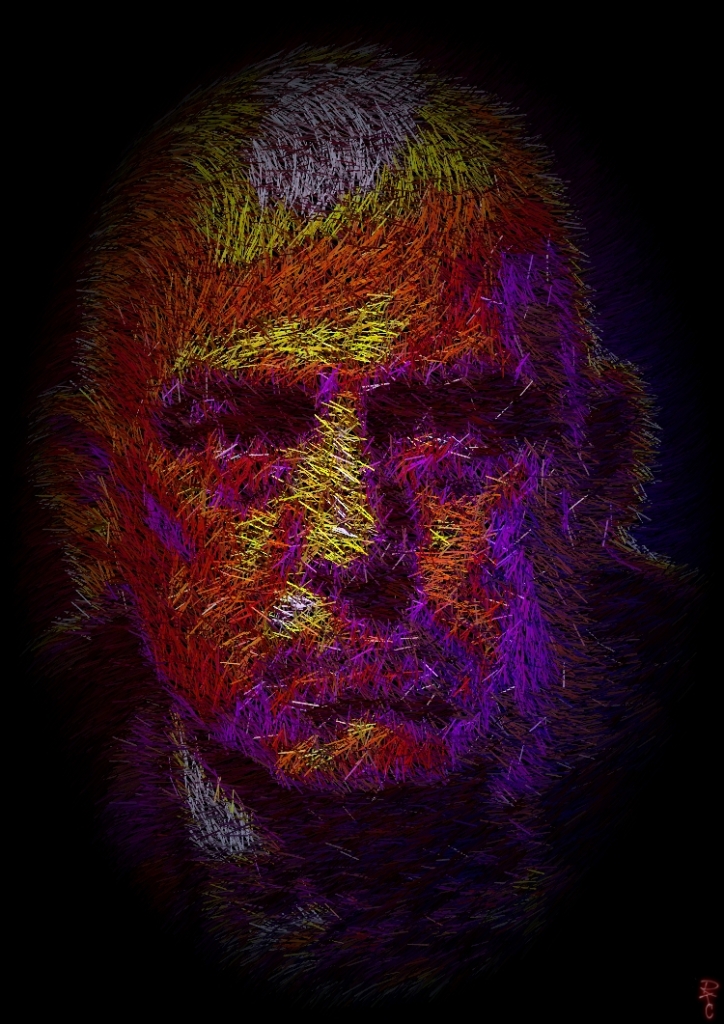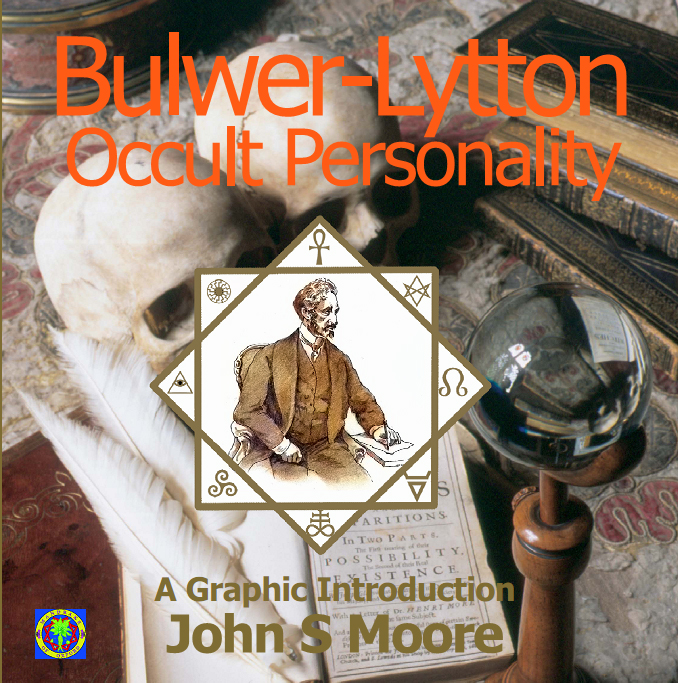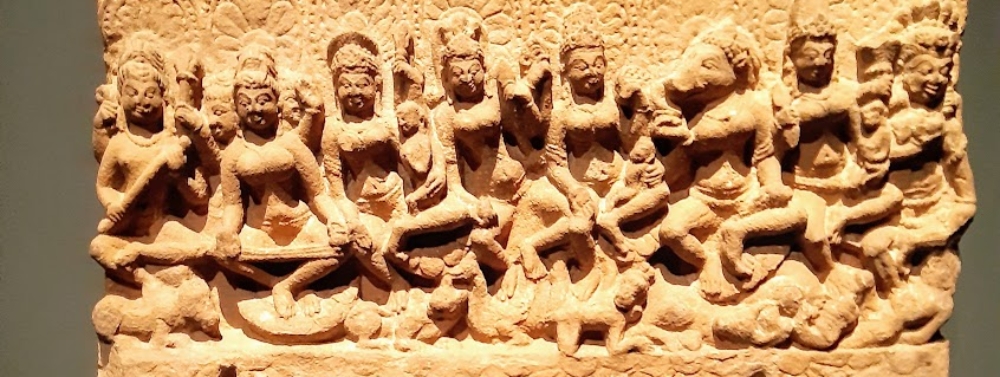I, Mogg Morgan continue my exploration.

So Crowley, lots of books written about him, biographies, lots of them done already, so not really much to say that hasn’t been said, though having said that, I can think of a few things that to my mind could still be explored, but that’s another story. John Moore managed to come up with a few new angles, lets start there. John Moore died a year or so back, so I thought I’d talk to his son Alistair about John’s research.
I asked Alistair to first tell me a little about himself, as I know people enjoy the personal touch, well I do anyway. Was he perhaps named after Crowley?
I’m John’s younger son (I have an older brother, Simon). I’m a freelance analyst and also a writer myself – I had a novel (The Release, Candy Jar Books) published in 2018. I grew up in London and studied Russian at Exeter University. As for being named after Crowley – people often ask, but my parents both assured me I wasn’t – my mother wanted to call me Alexander but finally they decided upon Alistair, the Scottish variant.
We are talking about your father whose untimely death robbed us of a chance to talk to him about his interesting books about Crowley. Before we get into would you like to share some personal reflections about your father.
With John being an intellectual I grew up surrounded by thousands of books. He introduced me to literature at a young age, so I read many of the Russian greats – Turgenev, Bulgakov, Dostoevsky. One of my favourite novels is Sanine, by a little-known writer called Artzibashev – my dad bought me an original hardback of this, I think dating back to when it was published in the early 20th century. Even Russian friends haven’t heard of the book or the writer, but it’s a fantastic novel, similar in some ways to Lermontov’s Hero of Our Time, with an antihero theme. John didn’t have any Russian ancestry btw, he was just a real fan of the literature.
Being exposed to all this led to me studying Russian, and definitely influenced me in my own path to becoming a writer. Dostoevsky was one of John’s favourite writers, and his favourite novel of Dostoevksy’s was The Devils. John was a philosopher, so he especially enjoyed novels dense with philosophical ideas, common with Dostoevsky.
John was a good father, perhaps not a typical dad, but then he wasn’t a typical person either. He could never have endured a life working in an office. Philosophy and ideas were central to his life, so it was inevitable I’d absorb these influences growing up, and I’m grateful for that. He left quite a legacy with his own writing, in print and online, much of which I am discovering now. His writing is packed with ideas, this is very apparent even in the accessible format of the graphic books on Crowley and Bulwer-Lytton.
We weren’t ready to lose him, and he certainly wasn’t ready to go – there was much more he wanted to do, to write, experience and live. I’m grateful I was able to play a part in the production of his two graphic books Crowley: A Beginners Guide and more recently Bulwer-Lytton: Occult Personality, helping get these ideas and visions of his into print – with your help, of course.
Tell us more about John and his interest in philosophy. One of his books is Aleister Crowley: A Modern Master so I’m guessing from this that he had some professional interest in the world of ideas, tell us something about that.

Definitely – philosophy was his world. As I mentioned he especially enjoyed philosophical novelists like Dostoevsky, and the world of ideas in general. His favourite philosopher was Nietzsche. He was a member of the Nietzsche Society and read several papers at their international conferences. In 2011, he published his own book on Nietzsche called Nietzsche – An Interpretation, which contains 10 of these papers. For many years he also ran and moderated an online Nietzsche discussion forum. He also admired Schopenhauer. One project he sadly never got to complete was a compendium of what he felt were the most significant philosophers, named A Trip Around Philosophy.
More specifically he was obviously interested in Crowley – do you know anything about how he got into that, was he a magician?
I don’t know too much about how and when he first got into Crowley, but he was an admirer of Crowley’s writings and personal philosophy, which as I understand it is tied into certain ideas like Nietzsche’s revolving around free will. To an extent I think it’s fair to say he subscribed to the creed of ‘Do What Thou Wilt’. As for being a practitioner – no, despite his interest in the occult and ideas relating to it, his interest and involvement there was intellectual only.
John’s Aleister Crowley: A Modern Master was his first book on the topic. How did this title come about ?
While a lot has been written about Crowley, I think John’s contributions to the field have been original. The reason for the title A Modern Master was that he felt Crowley’s ideas, rather than being only of their time, have relevance today in the modern age, perhaps more than ever. That’s one aim of the book – to explain how Crowley’s ideas are linked to modernity and current thought.
As for pitching previously – although he got very positive feedback both from Fontana for this book, and from Icon (graphic guide publishers) for Crowley: A Beginners Guide I know one barrier was that Crowley was seen as a bit of a risky subject, perhaps too controversial or unsavoury for some readers. John talks about the book in this video from 2009.
Can you summarise the book in a nutshell?
An argument for Crowley’s importance in the modern age, a defense of what has been criticised as the more contemptible side of Crowley’s character, an exploration of some of his creative achievements, and an attempt to render his ideas more accessible.
What do you think is the book’s essence ?
Without doubt John was one of Crowley’s biggest fans. While I’m sure he didn’t agree with everything Crowley said or did, he always felt Crowley deserved more recognition for his ideas and writings, so I think in large part the book is a defense of Crowley and his work.
Turning to John’s sequel to Aleister Crowley: A Modern Master, was Crowley: A Beginners Guide – very unusually in graphic book format, how did this project come about?

I believe the idea was originally suggested by a friend of John’s, a Sikh he worked with back in the eighties, who thought an illustrated graphic guide along the lines of Icon Books’ popular ‘Introducing’ series based on Crowley, could do well. It took John some time to get round to it, but when he got started on the text, I introduced him to John Higgins, an illustrator acquaintance of mine. John Higgins produced a great number of original ink drawings for the book, which I then combined with John’s text and some free-for-use imagery to produce formatted illustrated pages ready for publication by Mandrake.
It was an immensely fun project to work on, and I’m very proud of what we all created – a lovely little graphic guide filled with very entertaining artwork to accompany all the ideas inside it.
The format is unusual , why did he choose this, perhaps as an antidote to the normal heaviness of its topic?
Mainly accessibility. As you say there is a density of ideas there, but John wanted to open them up to as wide an audience as possible. That’s not to say it’s dumbed down – not at all. Although some Crowleyites might bristle at the ‘Beginners’ part of the title, it’s packed with content and exploration of his key ideas, influences and legacy. It just happens to be in a very novel and entertaining format. Beginners Guide has the potential to reach a wider audience than Modern Master, something like a primer.
John also wrote in similar format a book on Bulwer Lytton: Occult Personality – very unusual but neglected topic. There is a Crowley connection, I think I’m right that his esoteric novel Zanoni, made it onto Crowley’s reading list for all aspiring students of magick. But what’s the story behind this?

Again, the Bulwer book was something he’d been wanting to do for a while. John got to know Lytton’s great-great-great grandson Henry Lytton-Cobbold, and was an occasional guest at Knebworth House, the ancestral home of the Lyttons (and well known rock concert venue) after Henry came across an article on John’s website about Bulwer-Lytton.
John admired Bulwer-Lytton’s writing, feeling it was unfairly derided (I was myself surprised to hear that at one point, he was the best-known novelist in the English-speaking world). Again, with this book John aimed to explore and bring to a wider audience Bulwer-Lytton’s key role in esotericism, philosophy, and key cultural movements in the Victoria era, as well as showing the relevance of much of these ideas today. He talks about the book and the ideas in it here (filmed around late summer 2018 at the Canonbury pub in Islington).
The format of the book is similar to Beginners Guide, a graphic introduction. It contains a lot of artwork by John Higgins and another artist named Paul Campbell, a friend of my brother Simon.
John was already ill when he started work on this, so there was a little more urgency to the project. Happily he lived to see and enjoy the book’s publication.
Again, he opted for a very unusual, unique format – what do you think about that? Something I’ve noticed, I wonder if the magical people who mostly read this kind of stuff, are they open to this kind of graphic approach – they can be a bit serious, perhaps too much so?
I can’t claim to know these magical people well enough to know how serious they are, or they might feel about the approach! However, as with Crowley: A Beginners Guide I’d say that despite the format, designed to be accessible as well as original and entertaining, both books are packed with ideas and pretty rigorous explorations of both men and their ideas.
Even though I have no special interest in the occult or esotericism myself, I find Bulwer-Lytton: Occult Personality really educational, especially in regard to the Victorian era – religion, philosophy, antiquity, artistic movements and so on. It’s a bit like a springboard, making you want to go off and explore these topics in more depth.
As for humour, I think done properly it works well in these contexts as long as you don’t trivialise the subjects, and I think both the graphic guides get this balance right. A world without humour would be a depressing place indeed!
Thanks, you’ve been great, anything else you would like to add that you think I should have asked but forgot?
The last thing John published was this selection of his own poetry, 100 Poems, the earliest of which I think he wrote when he was 15. I recorded this interview with him talking about the book in April 2019, a couple of months before he died. Getting this collection out was important to him, and I know he’d be happy for it to get a mention here.
A lot more of John’s writing is online – his websites are here
http://www.mith.demon.co.uk (his main original site, up since the 90s)
http://john-jsm.wikidot.com/
http://johnsmoore.co.uk/
